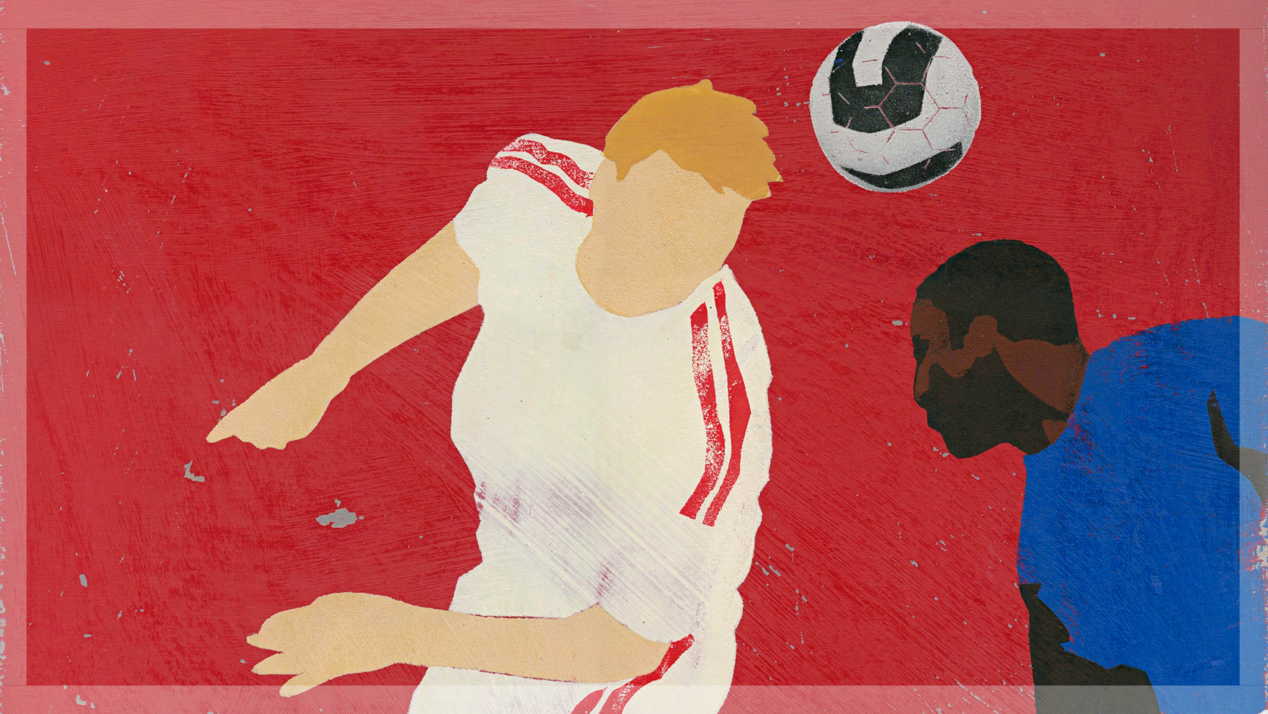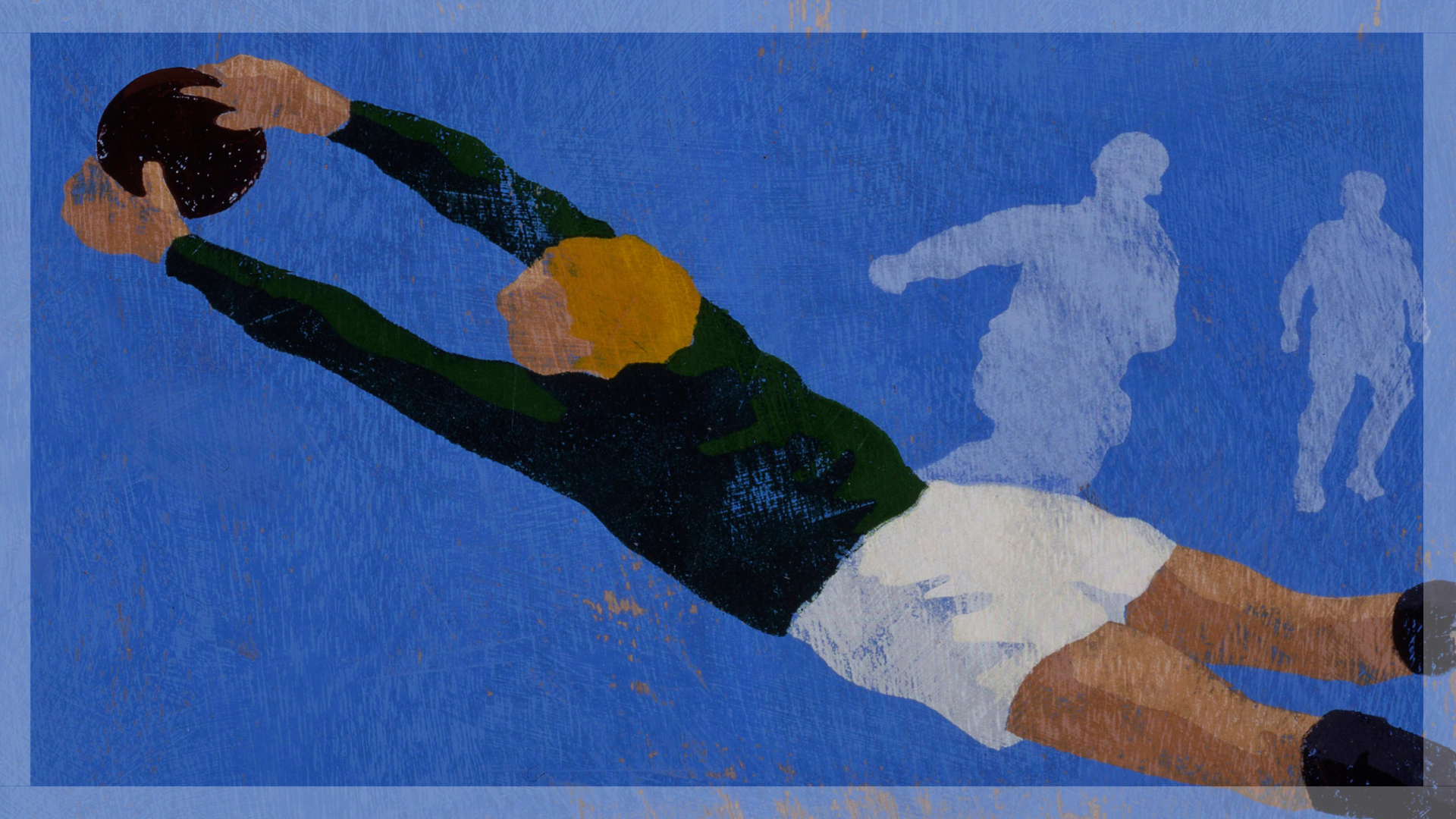During the early days of the dictatorship, the football stadium was one of the few public places where people were still allowed to speak regional languages that were prohibited elsewhere. There was a gradual relaxation of this language policy in the early 1960s, and in 1960 Barça’s club newspaper even published its New Year greetings in Catalan.
Football was also meant to help dissuade the Spanish people from becoming politically active. For example, matches were played on 30 April and 1 May in order to avoid potential worker protests. Vicente Calderón, then President of Atlético de Madrid, described this attempt to give football a depoliticising role during a TV interview in 1969: ‘It is hoped that football dulls people’s brains and that they (the people) spend the three days before and after the game thinking about football. Then they won’t be thinking about dangerous things.’
Following FC Barcelona’s cup win against Athletic de Bilbao in Madrid in 1953, the Spanish-Filipino journalist Eduardo Teus mused all the more openly about the cultural, religious and linguistic construct of the concept of 'Hispanidad': ‘In footballing terms, the raza española can be compared to the crusaders from Athletic de Bilbao, the very essence of a Spanish club, without foreign influence... FC Barcelona did not want to be associated with Spanishness, so it decided to create an international team, a concept that calls to mind so many degenerate ideas’.
By ‘degenerate ideas’ he meant the political theories of liberalism and communism, which were considered very un-Spanish in Francoist ideology and could only have been introduced from abroad. The Civil War – which had been given the status of a ‘crusade’ – was meant to allow the Nationalists to drive these kinds of ideas out of Spain.
Despite having one or two players of non-Spanish origin, the image of Real Madrid was very important to the regime, particularly on its travels abroad. This was not because Franco had pressured officials at the club or was pursuing a grand scheme relating to the sport, but more that the regime took advantage of Real’s participation and success to project an image of Spain. Looking back at the role of Real during the dictatorship, the Spanish journalist Alex Botines wrote in 1975: ‘For years Real Madrid was the team that was the bedrock of support for the Franco regime. The club demonstrated to the whole of Europe that Spain was still an important country, despite the fact that it was a late developer – both out of necessity and through its own choices. Real Madrid was regarded as the exception to this underdevelopment and allowed us to hold our heads high on the international stage.’
Despite having one or two players of non-Spanish origin, the image of Real Madrid was very important to the regime, particularly on its travels abroad.
Here, Botines was expressing the concerns felt by many Spaniards during the 1950s and 1960s: the economic backwardness of the country; the worry of not being thought of as a real member of ‘modern’ Europe because of the Fascist dictatorship; and – after the Civil War and years of international condemnation – a desire to feel they could finally lift their heads a little higher. The Francoist ruling elite was well aware of the fact that Real Madrid was playing an ambassadorial role for Spain.
In 1959, the Secretary General of the Falange, José Solíus Ruiz, went as far as to say: ‘You’ve achieved far more than the many embassies that God’s own people have around the world. People who once hated us, now understand us thanks to you, because you’ve torn down so many walls. […] Your victories fill all Spaniards with genuine pride, in Spain and beyond the borders of our motherland. And when you return to the changing room after a game, you know that all of Spain is with you and by your side, full of pride because of your victory, which allows the Spanish flag to fly so high’.
Recording of the National Anthem
Every time the influential Real Madrid official Raimundo Saporta travelled abroad, he made sure he had a recording of the Spanish national anthem and a Spanish flag in his luggage, in order to avoid any diplomatic faux pas. An example of such a blunder happened on 12 May 1955 at a friendly match between the Galician team Celta de Vigo and FC Toulouse.
Thousands of exiled Spaniards lived in Toulouse and the city was even host to party congresses organised by left-wing groups such as the Social Democrats, who were banned in Spain. Before the game, spectators apparently played the Republican national anthem and waved Republican flags, without the club making any kind of protest. Saporta wanted to be prepared for this kind of eventuality. And in 1963 he was also given the tricky task of ensuring that the two matches between the basketball teams belonging to Real and ZSKA Moscow went smoothly, particularly as this was to be the first official contact between the two countries since the Civil War.
Members of the opposition were able to draw a clear distinction between their passion for football and the obvious attempts by the regime to instrumentalise the sport. Occasionally the regime’s attempts to carefully manage its international image backfired when Real Madrid games abroad were used as an opportunity to stage protests against the Franco regime. As Real was not able to maintain its run of international success during the 1960s, and international relations started to normalise due to a general policy of détente, the regime no longer needed to rely on alternative, unofficial representatives to pursue its foreign policy objectives as it now had access to traditional diplomatic channels.
There were two main reasons why the team was important to the foreign policy interests of the Franco regime. Firstly, there was a lot of money to be made, and secondly, club officials would report back to the Spanish Ministry of Foreign Affairs on the situation in the countries visited after every international trip.
Even though Santiago Bernabéu was always at pains to stress that he and ‘his’ club served the people and Spain rather than the regime, Real naturally profited in many different ways from its close ties to the dictatorship. The club was accorded a range of political favours, including speeding up the bureaucratic process for granting naturalisation to foreign players, and conspicuous access to luxury goods.
During the later stages of the dictatorship in the early 1970s, clubs like FC Barcelona and Athletic Bilbao started to use the ‘football stage’ to position themselves politically. The Catalan flag was officially flown at games played at the Campo Nou even before Franco’s death in 1975, and the team’s captain wore the Catalan colours as an armband. Barça’s 5:0 victory over Real in 1974, which helped the Catalan club to win the league for the first time since 1960, was seen as a political symbol, and for many it signalled the end of the dictatorship.
In October 1975, just a few weeks before Franco died, Athletic Bilbao players wore black armbands during a league game. They claimed they were wearing the armbands to commemorate the death of a member of the club. But it was quite clear that this was a silent protest against the death sentences passed by the already ailing regime, which had attracted international condemnation. At the Basque derby game between San Sebastián and Bilbao in December 1976, the two captains held aloft the Ikurriña, the Basque flag that was still banned, as an open demonstration of support for the special rights of the Basque people that had been denied under the dictatorship.
The public perception of the clubs from Madrid, Barcelona and Bilbao during the Franco dictatorship still plays an important role today when it comes to both their support and their political significance. Athletic Bilbao has always had a policy of only playing native-born Basque players. Their squad currently includes Iñaki Williams, who has African parents but was born in Bilbao. This represents a certain softening of their policy as the club adapts to the realities of globalisation.
Pep Guardiola stood as a candidate for the separatist alliance Junts pel Si (Together for Yes) in the Catalan regional elections in September 2015. In early 2016, a regional government was put in place that, for the first time since the end of the dictatorship, was in a position to draw up a concrete plan for independence. It remains unclear what this could mean in terms of a newly independent Catalonia becoming a member of the EU, or indeed FC Barcelona remaining in the Spanish league.
During the early days of the dictatorship, the football stadium was one of the few public places where people were still allowed to speak regional languages that were prohibited elsewhere.
At European level, Madrid is threatening to block any attempt by Catalonia to join the EU. Perhaps Barça, like AS Monaco, could play in the French Ligue 1 as a non-French club. However, from a sporting and emotional perspective, this would not be a good option for the attractiveness of the Spanish Liga or for F.C. Barcelona itself.









